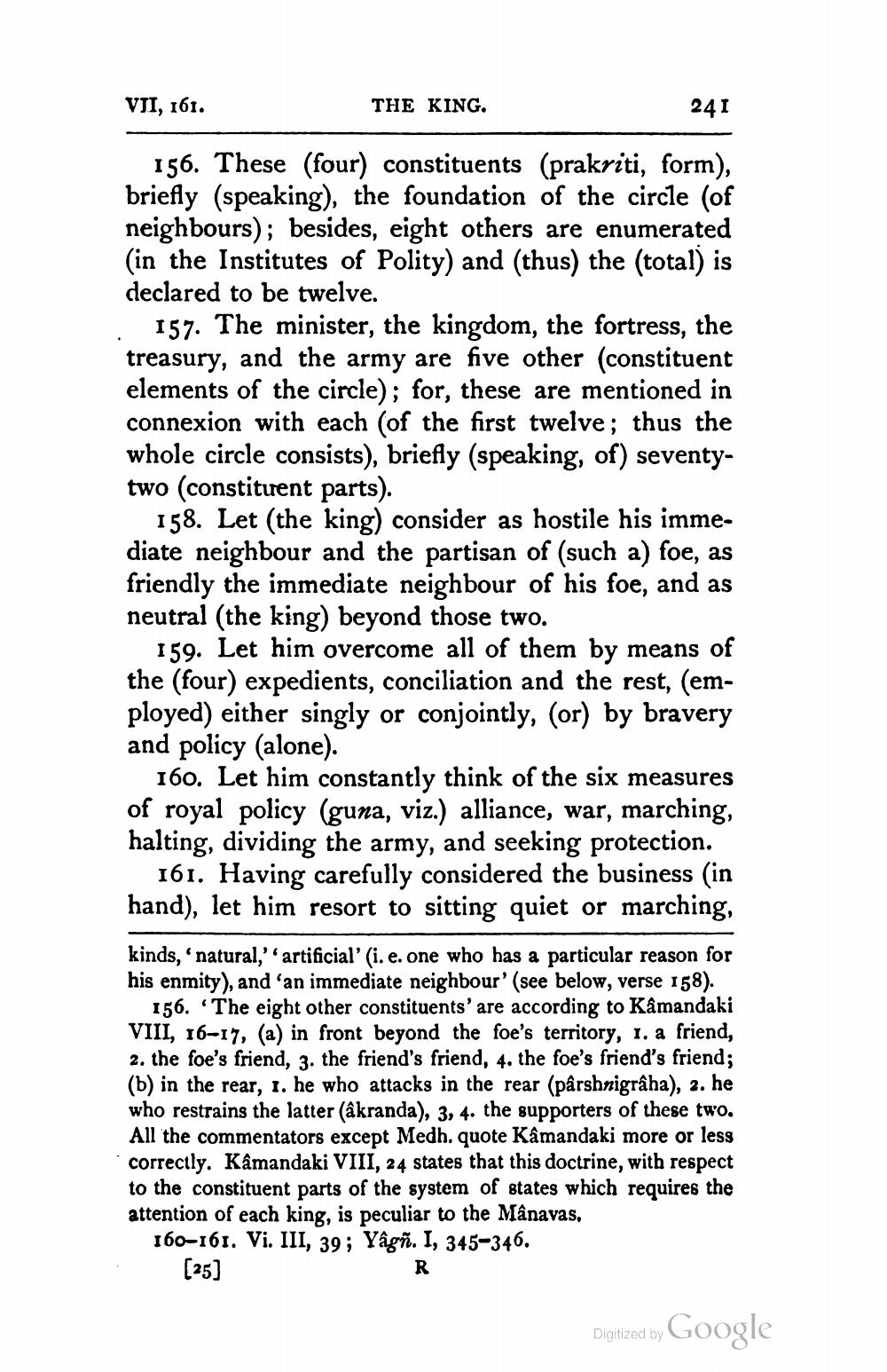________________
VJI, 161.
THE KING.
241
156. These (four) constituents (prakriti, form), briefly (speaking), the foundation of the circle (of neighbours); besides, eight others are enumerated (in the Institutes of Polity) and (thus) the (total) is declared to be twelve.
157. The minister, the kingdom, the fortress, the treasury, and the army are five other constituent elements of the circle); for, these are mentioned in connexion with each of the first twelve; thus the whole circle consists), briefly (speaking, of) seventytwo (constituent parts).
158. Let (the king) consider as hostile his immediate neighbour and the partisan of (such a) foe, as friendly the immediate neighbour of his foe, and as neutral (the king) beyond those two.
159. Let him overcome all of them by means of the (four) expedients, conciliation and the rest, (employed) either singly or conjointly, (or) by bravery and policy (alone).
160. Let him constantly think of the six measures of royal policy (guna, viz.) alliance, war, marching, halting, dividing the army, and seeking protection.
161. Having carefully considered the business (in hand), let him resort to sitting quiet or marching, kinds, 'natural,' artificial' i.e.one who has a particular reason for his enmity), and 'an immediate neighbour' (see below, verse 158).
156. The eight other constituents' are according to Kamandaki VIII, 16-17, (a) in front beyond the foe's territory, 1. a friend, 2. the foe's friend, 3. the friend's friend, 4. the foe's friend's friend; (b) in the rear, 1. he who attacks in the rear (pârshnigrâha), 2. he who restrains the latter (@kranda), 3, 4. the supporters of these two. All the commentators except Medh. quote Kâmandaki more or less correctly. Kamandaki VIII, 24 states that this doctrine, with respect to the constituent parts of the system of states which requires the attention of each king, is peculiar to the Mänavas. 160-161. Vi. III, 39; Vâgñ. I, 345–346.
[25]
Digitized by Google




